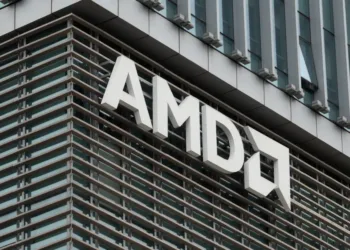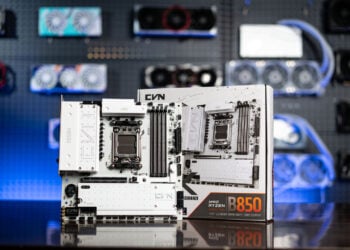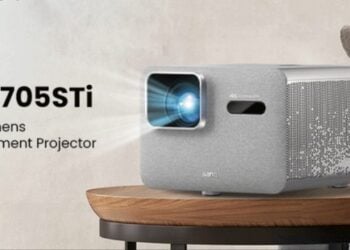According to a recent report from Commercial Times we have got some further information on Intel’s 13th Generation Meteor Lake CPUs, which will power next-generation PCs in 2023. According to the source who cites its sources, there are several intriguing specs and process nodes that will be used by the next-generation Intel CPU.
Earlier we received the first glance just a few days ago, at the test chip for the Intel Meteor Lake CPU, which has a quad-tile architecture. Everyone stepped in to contribute their interpretation, and it appears that virtually everyone has concluded that the center tile is for the GPU, the computation tile for the CPU is on top, and the SOC tile is the smallest at the bottom.
We also got our first glance at the 300mm diagonal Meteor Lake test chip wafer. The wafer contains test chips that are fake dies, which are used to ensure that the chip’s interconnects function properly. Intel has already achieved Power-On for their Meteor Lake Computer CPU tile, therefore we may expect final chips to be manufactured by the 2nd of 2022 for a 2023 launch.
Intel has previously provided certain facts, such as the fact that Intel’s Meteor Lake range of desktop and mobile CPUs would be built on a new line of Cove core architecture. The Redwood Cove is said to be based on a 7nm EUV (Intel 4) process node and will be branded as the Redwood Cove. The Redwood Cove is said to be built from the ground up to be an agnostic node, which means it may be built at many fabs.
Meteor Lake CPUs will be Intel’s first CPU generation to bid goodbye to the ring bus connectivity design. There are also reports that Meteor Lake will be a completely 3D-stacked design with an I/O die acquired from a third party (TSMC sighted again). According to the source, the SOC-LP Tile will be based on TSMC’s N5 or N4 manufacturing node, while the GPU tile would be based on TSMC’s 3nm node.
Meteor Lake Desktop CPUs are likely to continue support for the LGA 1700 socket, which is also utilized by Alder Lake and Raptor Lake processors. DDR5 memory and PCIe Gen 5.0 capabilities are on the way. The platform will handle both DDR5 and DDR4 memory, with DDR4 memory DIMMs used in the mainstream and budget tiers and DDR5 DIMMs used in the premium and high-end offerings. The website also offers Meteor Lake P and Meteor Lake M CPUs, both of which will be geared at mobile platforms.
Intel Mainstream Desktop CPU Generations Comparison:
| Intel CPU Family | Processor Process | Processors Cores/Threads (Max) | TDPs | Platform Chipset | Platform | Memory Support | PCIe Support | Launch |
| Sandy Bridge (2nd Gen) | 32nm | 4/8 | 35-95W | 6-Series | LGA 1155 | DDR3 | PCIe Gen 2.0 | 2011 |
| Ivy Bridge (3rd Gen) | 22nm | 4/8 | 35-77W | 7-Series | LGA 1155 | DDR3 | PCIe Gen 3.0 | 2012 |
| Haswell (4th Gen) | 22nm | 4/8 | 35-84W | 8-Series | LGA 1150 | DDR3 | PCIe Gen 3.0 | 2013-2014 |
| Broadwell (5th Gen) | 14nm | 4/8 | 65-65W | 9-Series | LGA 1150 | DDR3 | PCIe Gen 3.0 | 2015 |
| Skylake (6th Gen) | 14nm | 4/8 | 35-91W | 100-Series | LGA 1151 | DDR4 | PCIe Gen 3.0 | 2015 |
| Kaby Lake (7th Gen) | 14nm | 4/8 | 35-91W | 200-Series | LGA 1151 | DDR4 | PCIe Gen 3.0 | 2017 |
| Coffee Lake (8th Gen) | 14nm | 6/12 | 35-95W | 300-Series | LGA 1151 | DDR4 | PCIe Gen 3.0 | 2017 |
| Coffee Lake (9th Gen) | 14nm | 8/16 | 35-95W | 300-Series | LGA 1151 | DDR4 | PCIe Gen 3.0 | 2018 |
| Comet Lake (10th Gen) | 14nm | 10/20 | 35-125W | 400-Series | LGA 1200 | DDR4 | PCIe Gen 3.0 | 2020 |
| Rocket Lake (11th Gen) | 14nm | 8/16 | 35-125W | 500-Series | LGA 1200 | DDR4 | PCIe Gen 4.0 | 2021 |
| Alder Lake (12th Gen) | Intel 7 | 16/24 | 35-125W | 600 Series | LGA 1700 | DDR5 / DDR4 | PCIe Gen 5.0 | 2021 |
| Raptor Lake (13th Gen) | Intel 7 | 24/32 | 35-125W | 700-Series | LGA 1700 | DDR5 / DDR4 | PCIe Gen 5.0 | 2022 |
| Meteor Lake (14th Gen) | Intel 4 | TBA | 35-125W | 800 Series? | LGA 1700 | DDR5 | PCIe Gen 5.0? | 2023 |
| Arrow Lake (15th Gen) | Intel 4? | 40/48 | TBA | 900-Series? | TBA | DDR5 | PCIe Gen 5.0? | 2024 |
| Lunar Lake (16th Gen) | Intel 3? | TBA | TBA | 1000-Series? | TBA | DDR5 | PCIe Gen 5.0? | 2025 |
| Nova Lake (17th Gen) | Intel 3? | TBA | TBA | 2000-Series? | TBA | DDR5? | PCIe Gen 6.0? | 2026 |








